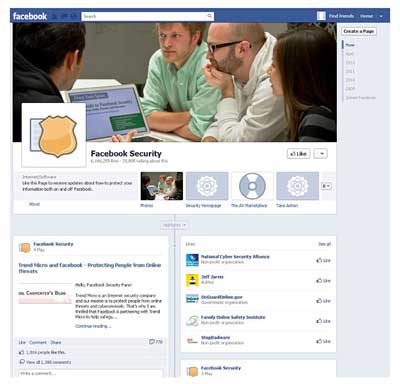當前位置: Language Tips> 雙語新聞
分享到
 |
|
Released under a freedom of information request, the information sheds new light on how government analysts are instructed to patrol the internet searching for domestic and external threats(dailymail.co.uk) |
|
The Department of Homeland Security has been forced to release a list of keywords and phrases it uses to monitor social networking sites and online media for signs of terrorist or other threats against the US. The intriguing the list includes obvious choices such as 'attack', 'Al Qaeda', 'terrorism' and 'dirty bomb' alongside dozens of seemingly innocent words like 'pork', 'cloud', 'team' and 'Mexico'. Released under a freedom of information request, the information sheds new light on how government analysts are instructed to patrol the internet searching for domestic and external threats. The words are included in the department's 2011 'Analyst's Desktop Binder' used by workers at their National Operations Center which instructs workers to identify 'media reports that reflect adversely on DHS and response activities'. Department chiefs were forced to release the manual following a House hearing over documents obtained through a Freedom of Information Act lawsuit which revealed how analysts monitor social networks and media organisations for comments that 'reflect adversely' on the government. However they insisted the practice was aimed not at policing the internet for disparaging remarks about the government and signs of general dissent, but to provide awareness of any potential threats. As well as terrorism, analysts are instructed to search for evidence of unfolding natural disasters, public health threats and serious crimes such as mall/school shootings, major drug busts, illegal immigrant busts. The list has been posted online by the Electronic Privacy Information Center - a privacy watchdog group who filed a request under the Freedom of Information Act before suing to obtain the release of the documents. (Read by Emily Cheng. Emily Cheng is a journalist at the China Daily Website.) (Agencies) |
美國國土安全部近日應要求公開了用于監控社交網站和網絡媒體的“敏感詞”,這些“敏感詞”用于防范針對美國的恐怖分子和其他威脅。 有趣的是,這份詞匯表不僅包括一些顯而易見的敏感詞,如“攻擊”、“基地組織”、“恐怖主義”、“臟彈”,還包括“豬肉”、“陰云”、“小組”以及“墨西哥”等一些看似無辜的詞匯。 這份詞匯表是應信息自由的要求公布的,揭示了政府分析人員如何通過網絡搜索來尋找國內外安全威脅。 這份詞匯表收錄在該部門的2011年《分析師桌上手冊》中,由美國國家運營中心的員工使用。該手冊指導員工找出“對國土安全部以及其反應行動有不利影響的媒體報道”。 此前的一起針對《自由情報法》的訴訟向大家透露出分析師們是如何監控社交網站和媒體機構,獲取對美國政府的“負面”評論的。而后美國國會針對從這起訴訟中獲取的文件展開了聽證會。美國國土安全部的官員迫于壓力,公開了這本手冊。 但他們強調說,搜索敏感詞不是為了監控網絡上抨擊政府的言論以及持有異議的跡象,而是提醒潛在的安全威脅。 除了恐怖活動,國土安全部也命令分析師搜索與自然天災、公共衛生威脅和重大犯罪相關的證據。其中重大犯罪包括購物中心和學校發生的槍擊事件,大型緝毒活動以及大型非法移民破獲案等。 美國電子隱私信息中心已經將這份詞匯表上傳到網站上,這家隱私監管組織先前根據美國《自由情報法》提出了申請,而后要求安全部門公布這份文件。 相關閱讀 (中國日報網英語點津 Julie 編輯:陳丹妮) |
|
Vocabulary: shed new light: 進一步提示消息,作新的闡述 disparaging: 毀謗的,輕蔑的 |
上一篇 : 40歲以后生育的小孩更健康更聰明
下一篇 : 英女王御用替身曝光 工作24年分文不取
分享到
電話:8610-84883645
傳真:8610-84883500
Email: languagetips@chinadaily.com.cn